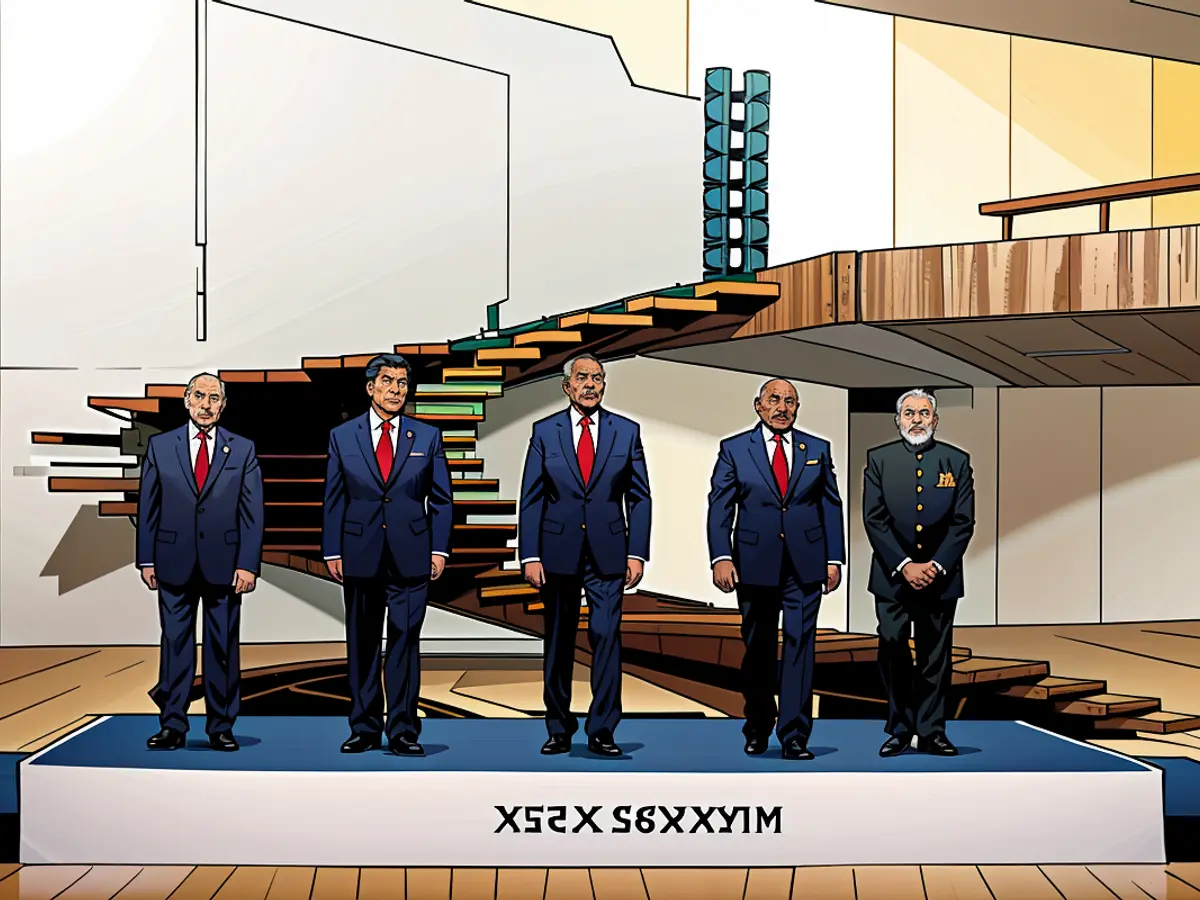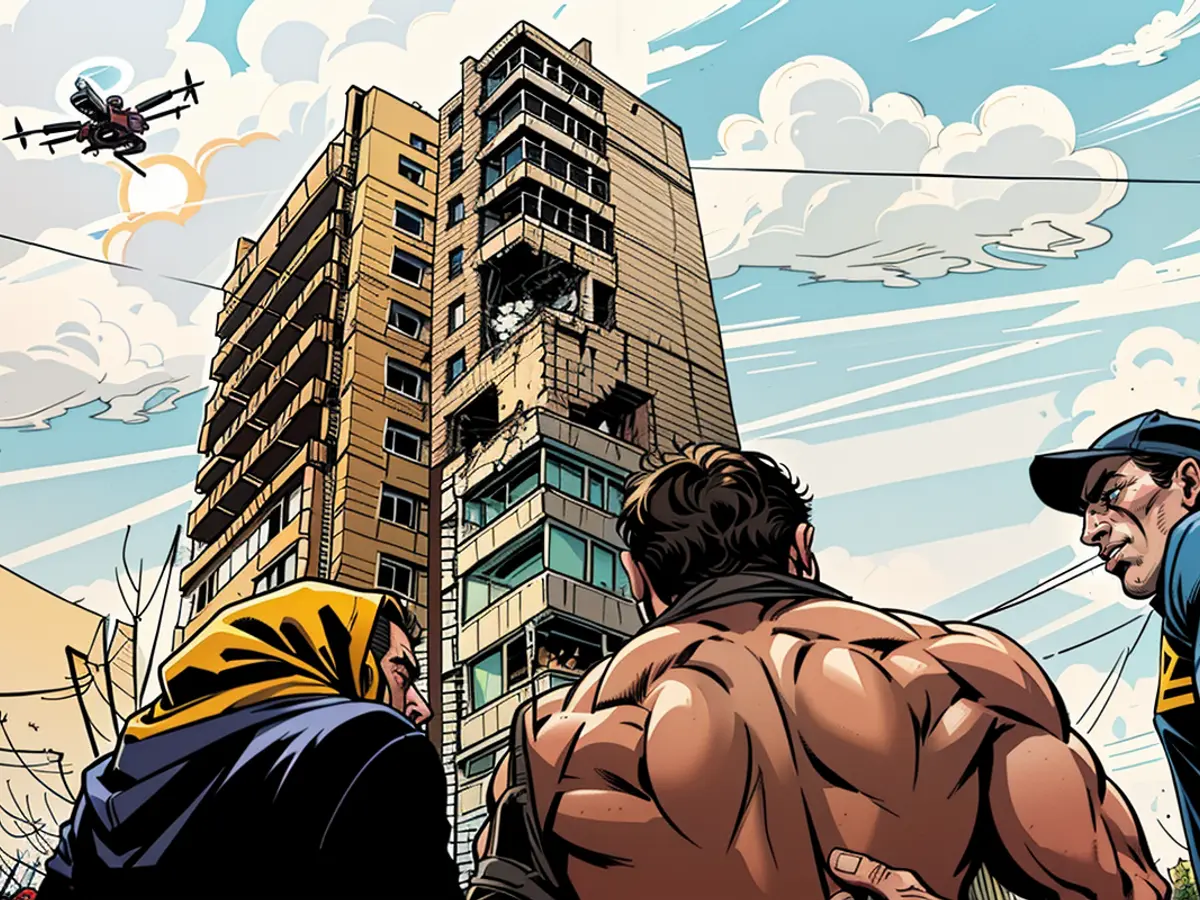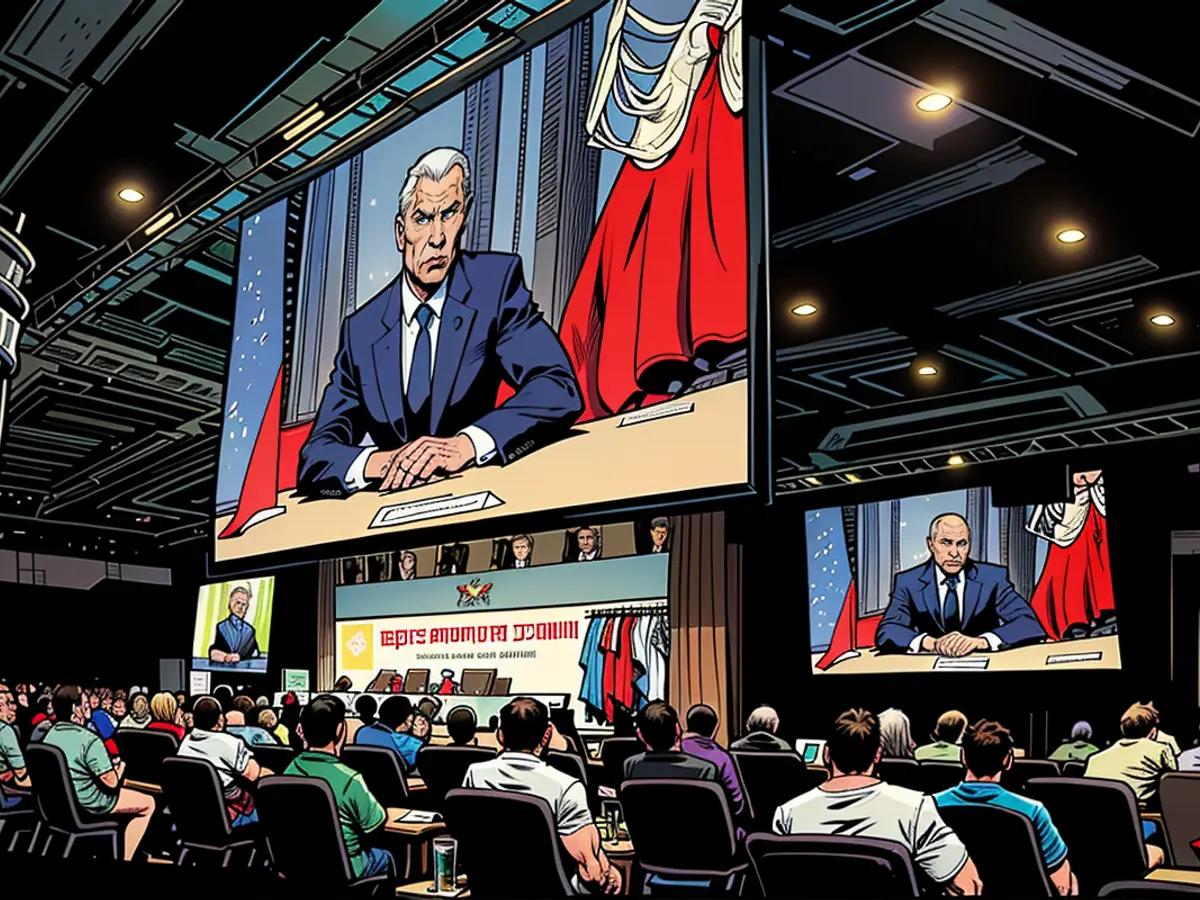Western powers aim to ostracize Putin. Despite organizing a significant meeting, it's evident he's not facing solitude.
The three-day BRICS summit, commencing on Tuesday in the southwestern Russian city of Kazan, will be the initial gathering of the group of major emerging economies Brazil, Russia, India, China, and South Africa since its expansion in early 2023 to incorporate Egypt, United Arab Emirates, Ethiopia, and Iran.
Leaders anticipated to attend include China's Xi Jinping, India's Narendra Modi, Iran's Masoud Pezeshkian, South Africa's Cyril Ramaphosa, as well as external participants like Turkish President Recep Tayyip Erdogan. Brazilian President Luiz Inacio Lula da Silva was predicted to participate but canceled his visit following an injury sustained at home.
As the largest international gathering Russian President Vladimir Putin has hosted since the onset of the conflict in February 2022, this week's BRICS conference, coupled with the presence of other nations, highlights the convergence of nations seeking to alter the global balance of power - with Moscow, Beijing, and Tehran among those aiming to directly challenge American leadership.
The message Putin and Xi, China's most powerful BRICS leader, will convey during this period is one of Western isolation, with crippling sanctions and alliances serving as evidence, contrasting with the strong support of a "majority" of the world's nations for their bid to challenge American global leadership.
In a brief address to reporters on Friday, Putin praised the growing economic and political power of BRICS nations as an "indisputable fact" and stated that, by working together, they could become a "significant element" of the new world order, albeit denying the reference to an "anti-Western alliance."
Given the upcoming US elections, Putin's messaging over the following days will carry additional weight as potential victories for former President Donald Trump could result in a US shift in its staunch support of Ukraine and a broader strain in Washington's ties with its traditional allies.
According to Alex Gabuev, director of the Carnegie Russia Eurasia Center in Berlin, "this BRICS summit is an unrivaled gift" for Putin, as "how can you speak of Russia's global isolation when leaders are arriving in Kazan?"
Russia aims to present BRICS as the "vanguard," the "leading organization" guiding us all into a more just world order, as stated by Gabuev.
However, the leaders attending the Kazan summit encompass a diverse range of perspectives and interests - a fact that observes attribute to the limitations of BRICS's ability to present an united message, particularly one in line with Putin's vision.
Global challenges
The Russian-hosted gathering represents a sharp contrast to last year's BRICS summit in Johannesburg, where Putin participated remotely due to an arrest warrant from the International Criminal Court for alleged war crimes regarding Ukraine.
This year, Putin heads the first summit following the organization's almost doubling in size, and the proceedings are taking place in a different global landscape.
BRICS' primary focus is economic collaboration, yet its meeting last year occurred amid the Ukraine conflict. While the Ukraine conflict continues, the expanding Middle East conflict, with Israel confronting Iran's proxies, is expected to be a key topic of discussion among leaders.
Putin confirmed that Palestinian leader Mahmoud Abbas would join the event. During the gathering, the Russian leader and officials will likely use the conflict to support their argument for a new world order without American leadership, according to observers.
China and Russia have advocated for a ceasefire in the escalating Middle East conflict and criticized Israel's actions, while the US has backed Israel's right to respond to militant groups Hamas in Gaza and Hezbollah in Lebanon.

Many summit attendees view the Middle East conflict as a persuasive reason why the collective influence of this particular group of nations should increase, said Abu Dhabi-based Jonathan Fulton, a senior non-resident fellow at the Atlantic Council. Nevertheless, he noted that countries were primarily utilizing this issue as a rhetorical tool to criticize unfavorable circumstances, rather than demonstrating a genuine interest in resolving the conflict.
Observers will also pay close attention to whether China and Brazil use the gathering as a platform to promote their six-point peace plan for the Ukraine war, as they did at the United Nations General Assembly meeting in September. At that time, Ukrainian leader Volodymyr Zelensky denounced the proposal, stating that it would only benefit Moscow, while cautioning Beijing and Brasilia: "You will not bolster your power at Ukraine's expense."
Zelensky's own attempts to present a "victory plan" to end the war and the impending US elections have provided China with "an exceptional opportunity" to rally behind its own format (regarding Ukraine) without jeopardizing too much leverage, according to Gabuev.
The gathering in Kazan offers Putin ample opportunities for one-on-one meetings with his fellow BRICS leaders and other friendly dignitaries present.
The incorporation of Iran – which CNN has reported has provided Russia with hundreds of drones, as well as short-range ballistic missiles (a claim Iran denies) – further strengthens Moscow's alliance. China has also been accused by the US and its allies of supporting Russia's war effort by providing dual-use goods like machine tools and microelectronics – a position Beijing defends as it upholds its "normal trade" with Russia and "neutrality" towards the conflict.
In the coming days, officials are set to delve into strategies to enhance ongoing endeavors to settle transactions beyond the US dollar-based system, utilizing BRICS currencies and financial networks. This shift could yield economic advantages, but also allows member states like Russia to bypass Western sanctions. Additionally, they are likely to explore methods to boost collaboration in areas such as economics, technology, and finance, spanning sectors like energy and satellite data sharing.
Simultaneously, they'll confront the rifts and contrasting aims among group members, which experts believe constrain BRICS' accomplishments.
This isn't an unusual challenge for the group, which started its inaugural summit of Brazil, Russia, India, and China in 2009, primarily representating prominent emerging markets. The following year, South Africa joined the group. In 2015, BRICS introduced its New Development Bank, serving as an alternative or supplement to the World Bank and International Monetary Fund.
Despite being loosely linked by a mutual desire to modify the global system to amplify their influence, BRICS has included nations with varying political and economic ideologies since its inception, along with other potential sources of tension.
For instance, India and China, two crucial BRICS members, have a protracted border disagreement, yet they form the foundation of this alliance. Their differences have grown more pronounced in recent years due to worsening China-US relations, while India and the US have strengthened their strategic bond.
Despite BRICS' recent expansion, and the Kremlin stating interest from over 30 additional countries to join or collaborate, intensifying geopolitical fissures further complicate BRICS' identity and direction, according to experts.
As put by Manoj Kewalramani, head of Indo-Pacific studies at the Takshashila Institution research center in Bangalore, "China and Russia have attempted to shift the group from the notion of BRICS as emerging economies to potentially being some form of manifestation of resentment towards Western dominance."
However, emerging or prospective members are less inclined to choose between this vision and the West. Instead, their aim is to foster economic growth and engage with global partners in a non-ideological, pragmatic manner.
Europe will undoubtedly be interested in the outcomes of the BRICS summit, given the global balance of power shifts that are becoming apparent. The inclusion of Iran in the BRICS group could have significant implications for Europe's geopolitical strategies.
Furthermore, the leaders at the BRICS summit will discuss various global challenges, including the ongoing Middle East conflict. The collective influence of these nations, including Europe's allies like Turkey, could shape the resolution of this conflict and the future world order.








